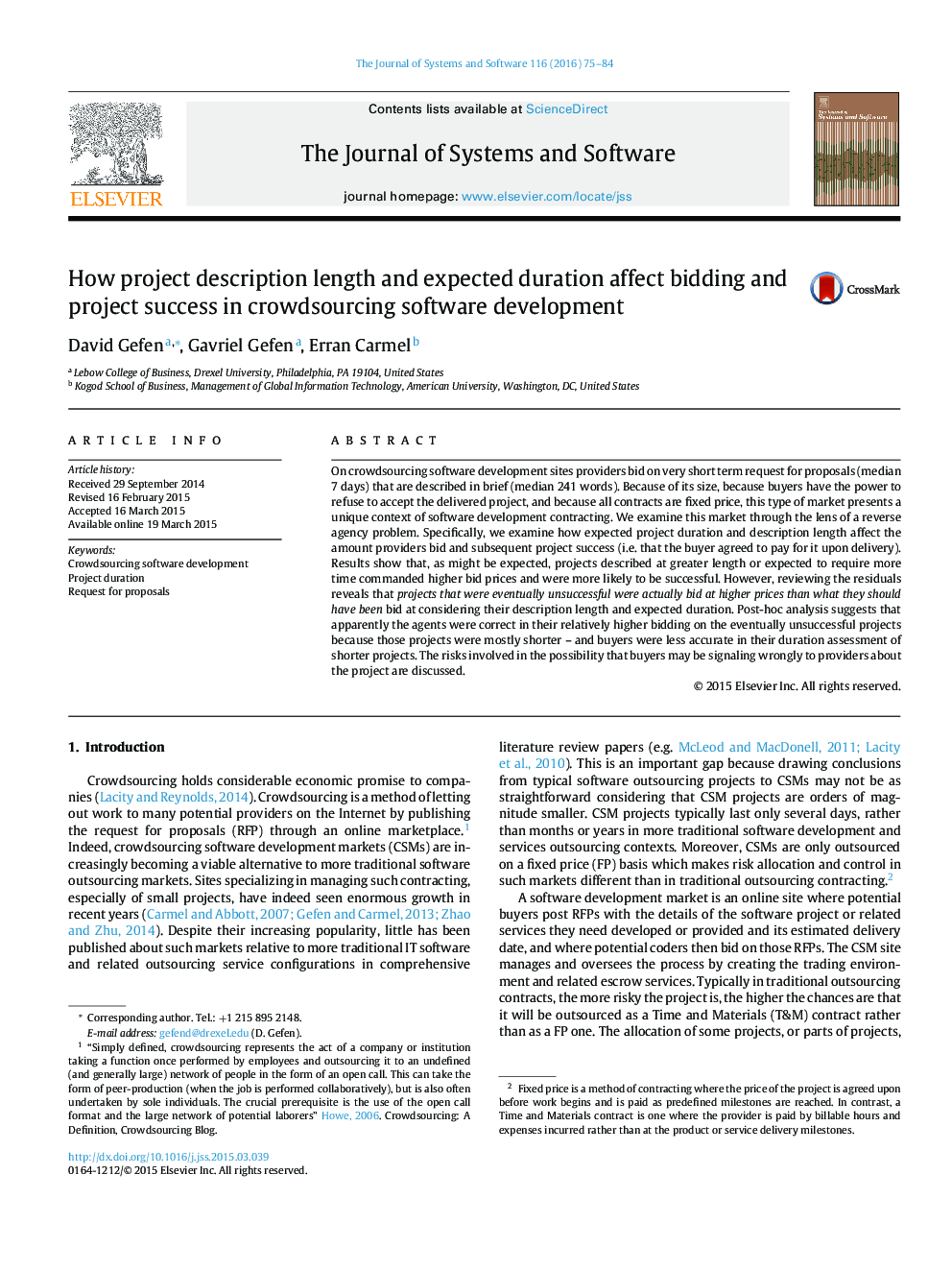| Article ID | Journal | Published Year | Pages | File Type |
|---|---|---|---|---|
| 461499 | Journal of Systems and Software | 2016 | 10 Pages |
•Successful projects were described at greater length, took longer, and bid higher.•Unsuccessful projects, however, were bid relatively higher than they should have been.•Agents may be bidding relatively higher responding to more risk.•That risk being that buyers estimated duration less accurately in shorter projects.
On crowdsourcing software development sites providers bid on very short term request for proposals (median 7 days) that are described in brief (median 241 words). Because of its size, because buyers have the power to refuse to accept the delivered project, and because all contracts are fixed price, this type of market presents a unique context of software development contracting. We examine this market through the lens of a reverse agency problem. Specifically, we examine how expected project duration and description length affect the amount providers bid and subsequent project success (i.e. that the buyer agreed to pay for it upon delivery). Results show that, as might be expected, projects described at greater length or expected to require more time commanded higher bid prices and were more likely to be successful. However, reviewing the residuals reveals that projects that were eventually unsuccessful were actually bid at higher prices than what they should have been bid at considering their description length and expected duration. Post-hoc analysis suggests that apparently the agents were correct in their relatively higher bidding on the eventually unsuccessful projects because those projects were mostly shorter – and buyers were less accurate in their duration assessment of shorter projects. The risks involved in the possibility that buyers may be signaling wrongly to providers about the project are discussed.
